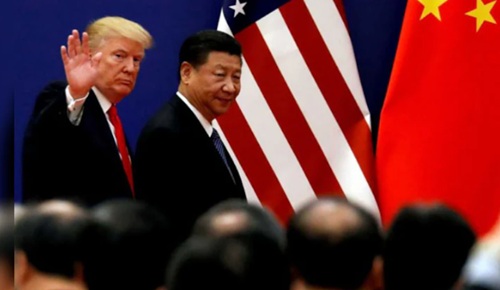In a move reflecting heightened diplomatic tensions, the United States has imposed a sweeping ban on romantic and sexual relationships between its government personnel in China and Chinese nationals.
According to an AP report, the directive, introduced in January 2025 by then-U.S. Ambassador to China, Nicholas Burns, extends to American diplomats, their family members, and contractors with security clearances stationed across mainland China and Hong Kong.
It prohibits any intimate involvement with Chinese citizens — a stark departure from previous protocols.
Previously, U.S. staff were only required to report romantic contact with Chinese nationals or avoid relationships with specific individuals, such as embassy guards. Under the new guidelines, however, such associations are outright forbidden unless formally exempted.
“This is a Cold War-era level of restriction,” said one diplomatic analyst, commenting on the policy's breadth. “American diplomats commonly date or even marry locals in host countries, but this new rule makes clear the U.S. sees China as a unique threat.”
The policy stems from growing concerns about espionage, particularly China's alleged use of "honeypots" — romantic traps designed to extract intelligence from foreign officials. Peter Mattis, a former CIA analyst, said, “Chinese state security agents have been known to seduce American diplomats, and even ordinary Chinese citizens who date them could be vulnerable to coercion.”
According to reports, personnel with pre-existing relationships may apply for exemptions. If denied, they must either end the relationship or vacate their post. Violation of the policy would lead to immediate expulsion from China.
The rule applies to U.S. government personnel stationed at the embassy in Beijing and consulates in Guangzhou, Shanghai, Shenyang, Wuhan, and Hong Kong. It does not, however, affect diplomats based outside of China.
The Chinese government has remained tight-lipped about the move. When asked for comment, the Ministry of Foreign Affairs said it would be “more appropriate to ask the U.S. about this question.”
Ironically, China already maintains stringent controls over the private lives of its own officials. Civil servants with foreign spouses are barred from senior appointments, while diplomats are not permitted to remain in any one country for extended periods. Chinese government staff are similarly forbidden from engaging in romantic relationships with foreign nationals.
The new U.S. directive comes amid rising tensions between Washington and Beijing over trade, technology, security, and global influence — a geopolitical rivalry that continues to reshape foreign policy on both sides.

